- Home
- Scott Westerfeld
The Last Days p-2 Page 11
The Last Days p-2 Read online
Page 11
I giggled, slipping a hand through the unzipped top of his jacket, pressing my palm against his chest. His heart was pounding deliciously. If he hadn’t been breathing so hard, I could have heard the warm blood rushing through his veins.
Don’t think naughty thoughts, I scolded myself.
“You made it, though.”
His eyes opened, a relieved grin making his face shimmer. “Yeah.”
I pulled my hand back from the hothouse of his jacket, pressed fingers against the door. “No one heard you. Relax.”
Mozzy nodded but didn’t relax at all. His expression was so naked, tension transforming into excitement, his own hunger rumbling. His eyes rolled across my tight black dress and boots, growing wider, about to burst.
“You’re all dressed up.”
I smiled. “Well, we’re going somewhere special, you know.”
“Oh.” He glanced down at himself: T-shirt under leather jacket, jeans. “I didn’t think… I mean, it’s two in the morning.”
“Shush, Moz. You look delicious.” I bent down and swept up Zombie. “Come on. Time for the creaky-ass stairs again.”
“Okay…” He frowned. “The cat’s coming?”
I sighed. Why was everyone always giving Zombie funny looks? He never stuck his nose into their business. Zombie had things to do, places to be. Zombie needed rescuing too. And he knew things.
If he could talk, Zombie would’ve told us what was coming.
But all I said was, “He’s got a date with a tree.”
“Oh, sure.” Moz smiled and softly opened the door.
With no smelly sun wrecking everything, outside was much better.
In beautiful soft starlight, I could see the dead leaves scattered on the ground, the spiderwebs sparkling in the grass, captured insects making them dance. The unburnt air was moist, thick with scents and sounds.
I put Zombie down, watched him slip in among the glistening piles of plastic bags. Those garbage mountains were alive in the darkness, the steady breeze carrying messages from deep inside.
I put my hand against one, felt its cool slickness. It had a scent like my room, my bedclothes, like something that Zombie and I shared. Little tremblings were rampant in the pile’s depths, answering my presence.
“Family,” I murmured, rustles of understanding moving through me.
“Um, yeah. Your family,” Moz whispered, glancing nervously back at my house, as if the porch light was about to pop on, Daddy emerging with a shotgun. “Where’re we going anyway?”
His anxious smell made hunger bubble up inside me again, and I wished I’d brought more garlic. I turned and took his hand, pulling him down the street. “This way. I’m taking you where I can show you things.”
“Oh, okay.” He followed in a silent trance, obedient in my grasp. As we neared the first intersection, though, my steps slowed. Everything was muddled.
I’d grown up on this street, but somehow things had changed. A new world had descended on my old neighborhood—a terrain of smells, skittering sounds, and territorial boundaries. The old maps inside my head had crumbled over the last two months, turning the street signs into gibberish.
“Which way’s the F stop, Moz?”
“We’re going somewhere by subway? It’s, like, two-thirty, Min!”
I frowned. “We’re not getting on a train. Just need to remember.” I squeezed his hand, looking up into his bulging, thirsty eyes. “I’ve been locked up for a while, you know.”
“Oh, right.” His throat rippled with a swallow. “Sure. It’s back this way.”
I followed him, familiar landmarks seething with the new reality—the vacant lot one block over, alive now with shivering forms; my old preschool, playground swings creaking in the breeze; the best Lebanese restaurant in Brooklyn, its garbage smelling of rancid honey and chick-peas, trembling with movement.
Luz has been robbing me of all this, I thought. She wanted to cure me of my new senses, to lock me away from this sumptuous half-lit world. Every step I took, I was finding out more… I still had enough crazy left to understand.
Moz took me to the F station down the block, and I pulled him to the lip of the stairs, breathed in the subterranean hum for a dizzy and exultant moment, like when la musica traveled through me. The beast rumbled, twisting happily in my guts.
“But I thought we weren’t—”
“We’re not taking the train,” I said. “This is just a shortcut.”
“A shortcut?” he said, not quite believing.
“You can only get what you want underground, Mozzy. But believe me, you’ll love the way it tastes.”
He blinked, then nodded. I smiled, covering my eyes as I pulled him down into the fluorescent lights, his pulse fluttering under my fingers.
Every step we took, the pull was getting stronger.
Moz could sense it too, as if its influence traveled through my skin and into his, an electric current of desire. Or maybe he could smell it on me—here underground I felt myself glowing with it, the beast inside me doing back flips, screaming that it was almost loose. Whatever was down here had freed it from Luz’s restraints. My tongue ran across my teeth uneasily.
Must… not… eat… Mozzy.
But I couldn’t stop moving forward either.
Behind me Moz was panting, eyes glittering like wet glass. When I jumped down from the platform onto the empty subway tracks, he didn’t say a word, just paused for a moment before following. His lips were full of blood, and I could see his heart racing in his throat. It was all I could do not to take him right there, but I knew it would only get better the farther down we went. I pulled him into the darkness of the tunnel.
Gravel crunched under our feet, and the skitters and smells of tiny things were all around us. My friends, my family.
Then a shiver traveled up into my toes… danger.
Moz pulled me to a stop. He’d felt it too. “Crap! Is that a train?”
I knelt, put one hand on a rail.
“Watch out! That’s—”
“Don’t be scared, Moz.” I pointed with my free hand. “That’s the electric one. This one’s just for listening…” The smooth, cold metal under my palm was trembling, but not with the approach of a train. Everything around us shivered: gravel, iron beams, the work lights hanging from their cords. The earth was shuddering in fear.
Calling me to the struggle—la lucha. Calling Moz too.
And suddenly I knew something that Luz’s cures had hidden from me, something I’d only glimpsed in my songs. The thing underground, the thing that made the earth rumble, was our enemy.
The beast inside me had been created to fight it.
“We have to be careful. It’s close.”
He sucked in deep breaths through his nose. “I’ve heard this, Min, at practice. It’s in your music.”
“Clever Mozzy.”
He shook his head. “But how come it has a… smell?”
I shrugged. “Because it has a body. It’s real and dangerous. And I don’t think we want to meet it just yet, so shush.” I dragged him farther into the tunnel, toward the trail that the old enemy had left behind—the perfect place to quicken the beast inside me.
As we grew nearer, I felt the rest of Luz’s restraints stripped away, the lures and tangles and spores of the beast spilling through my system. Finally I understood how it worked. Down here, the beast inside me didn’t want to eat Mozzy, it wanted to spread itself.
The old enemy somehow made it… horny.
Here was the hole, chewed and broken earth, like a wound in the side of the man-made tunnel, stained with the black stuff the enemy used to melt the earth. The ancient enemy was huge, I realized now, big enough to make its own tunnels, though it loved the subway’s free ride.
I dragged Moz into the gashed stone of its trail, pushed him against the crumbling edge, easily holding his shoulders in a grip he couldn’t break.
His pupils were as big as starless skies. “Min…”
“Shhh.�
�� I put one ear against the tunnel wall and listened… The enemy was drifting away, my bad hunger growing as its influence faded. My teeth wanted to pull Moz to pieces, to sate my hunger in a way no chicken blood could touch…
“I need to give it to you now,” I said.
“But what—”
“Mozzy…” I put my hand over his mouth. “Here’s the thing: if we stand here talking, I think I’ll eat you.”
His eyes wide, he nodded.
Pulling away my hand, I leaned forward, my mouth covering his, and the beast exploded. It struggled to filter through my skin, trying to wring itself out every pore, squeezing itself into my sweat and spit and blood, saturating every drop of me.
Infecting Moz, injecting him.
The kiss took long seconds, and when it was over I was dripping.
I pushed myself back from Moz and stared into his glittering eyes. He was panting, beautiful, infected. Relief swept through me, and I kissed him softer this time, finally certain that he was safe. Just this once, sane had beaten crazy.
After that first kiss, the hungry beast inside me didn’t want to consume this new warrior in the struggle. It was satisfied.
But me… I was only getting started.
17. FOREIGN OBJECTS
— PEARL-
I’d bought a new dress just for this, and nine kinds of makeup. My hair had been redone that afternoon, cut and blown and sculpted with goo. I was dripping borrowed bling and staring at my bathroom mirror, a contact lens balanced on the tip of my finger.
Color my mother ecstatic.
“You can do it, Pearl.” She was hovering behind me, similarly glammed.
“That’s not the question.” I stared at the contact lens, which shimmered like a tiny bowl of light. A dreadful, painful glow. “The question is whether I want to.”
“Don’t be silly, darling. You said you wanted to look your best tonight.”
“Mmm.” Foolish words that had sent Mom into a spending rampage.
Back a million years ago when she was seventeen, she’d actually had a coming-out party, like a real old-fashioned debutante. She still had the pictures. And we’d stayed in New York City no matter how high the garbage got, no matter how dangerous the streets—because this was where the parties were. So she probably hoped this was the beginning of a new era of Pretty Pearl, no more blue jeans or glasses or bands.
“I could just go there blind.”
“Nonsense. To be truly lovely, one must make eye contact. And I don’t want you stumbling all over the art.”
“She’s a photographer, Mom. Photos are traditionally hung on the wall; you can’t stumble on them.” Typical. It was my mother who always got invited to these things, but she never bothered to Google the artist. Which was lucky, I guess. A glance would have revealed who else was on the guest list tonight, giving away the real reason I wanted to go.
“Quit stalling, Pearl. I know you can do this.”
“And how do you know that, Mom?”
“Because I wear contact lenses and so did your father. You’ve got the genes for it!”
“Great,” I said. “Thanks for passing on those sticking-a-finger-in-your-eye genes to me. Not to mention the crappy-eyesight genes.” I stared at the little lens gradually drying to razor-sharpness on my fingertip, imagining all my totally lateral caveman ancestors jamming rocks and sticks into their eyeballs, none of them realizing the whole thing would pay off a thousand generations later when I had to look good at an art gallery opening.
“Okay, guys, this is for you,” I said, taking a breath and prying my left eye open wide. As my finger approached, the little transparent disk grew until it blotted out everything, dissolving into a fit of blinking.
“Is it in?” my mother asked.
“How the hell should I know?” I opened one eye, then the other, squinting at myself in the mirror.
Blurry Pearl, clear Pearl, blurry Pearl, clear Pearl…
“Hey, I think it’s in.”
“See?” my mother said. “That was easy as pie.”
“Pi squared, maybe. Let’s get going.” I scooped new makeup into my brand-new handbag, its silver chain glittering softly in my blurry eye.
My mother frowned. “What about the other one?”
I alternated eyes again—blurry mother, clear mother—and shrugged. “Sorry, Mom. I don’t think I’ve got the genes for it.”
As long as I could recognize faces, the demimonde was good enough for me.
Out on the street, Elvis made a big deal about my new look, acting like he didn’t recognize me, trying to get me to blush. The older I got, the more he thought his job was to make me feel ten years old. Lately, he was tragically good at it.
The weird thing was, though, by the time we arrived at the gallery, I felt twenty-five. There weren’t any cameras popping as Elvis swung the limousine door open for me, but there was a guy with a clipboard and headset, other blinged-up art lovers sweeping into the entrance, their bodyguards piling up out in the street, the clink and chatter coming from the crowd inside… It was almost like going onstage.
Even with everything going on, New York still had gallery openings. Civilization was still kicking ass, and here I was, in costume and in character. Ready to charm.
Once inside the gallery, the first trick was extricating myself from Mom. She kept showing me off to friends, all of them dutifully not recognizing me and dropping their jaws, reading from the same script as Elvis. Soon Mom was striking up conversations with strangers, dropping “my daughter” comments and clearly craving “Not your sister?” in response.
And she wonders why I don’t dress up more.
Finally, though, I weaseled out of her orbit with the lame excuse of wanting to look at, you know, the art. Her fingers trailed on my shoulder as I slipped away, reminding everyone one more time that I was her daughter.
I made my way straight to a table full of champagne, rows and columns of it bubbling furiously, and smiled. The open bar: where else would a record company rep hang out at an art opening?
I snagged a glass and hovered near the table, keeping an eagle eye (just one) out for the face I’d downloaded that morning. My trap was finally set—I was ready. All my lines were memorized; I was dressed ravishingly and standing in the perfect spot. There was nothing more I could do but wait.
So I waited…
Twenty minutes later, my enthusiasm had faded.
No record company talent scout had materialized, the glass was empty, and my feet were unhappy in their new shoes. The party buzzed around me, ignoring my little black dress and borrowed bling, like I was some kind of nonentity. Bubbles rattled unpleasantly in my head.
All my life I’d wondered how my mother’s sole life purpose could be going to parties, even while the world was crumbling around her. Finally Google had shown me the answer: her reason for existence was to get me into this party. Astor Michaels, Red Rat Records’ most fawesome talent scout, was also the biggest collector of this photographer’s work. He’d discovered the New Sound, signing both Zombie Phoenix and Morgan’s Army—not huge, commercial bands, but gutsy bands like us.
It was a perfect match, like when Moz and I had been brought together. Surely this was fate playing with my mother’s social calendar.
But as I picked up my second glass and wandered through the crowd, squinting at two hundred half-blurry faces and recognizing none of them, I started to consider an awful possibility: could fate be messing with me?
What if Astor Michaels was out of town? Or busy scouting bands at some undiscovered club instead of here? What if Google had lied to me? All my efforts tonight would be wasted—in fact, my mother’s whole life would be wasted…
I stood there, dizzy on my feet, staring at a half-empty glass and realizing something equally dismaying: the champagne gene was another one my mom hadn’t passed on. Maybe it was my half-blurry vision or the buzz of the uncaring crowd around me, but I felt like reality was in a blender.
I had to get co
ntrol.
I took a deep breath and pulled myself out of the crowd, wandering to the party’s edge to look at the pictures. They were gigantic photos of the sanitation crisis: glimmering mountains of plastic bags, garbage guys on strike, lots of rats. All were dramatic and weirdly beautiful, almost life-size, as if you could walk straight into them. Which begged the question: Why would you want this stuff on your wall when it was all happening right outside?
The crowd seemed to agree. People were crowded into the middle of the room, shrinking from the images of decomposition. Only a few of us hovered at the fringes of the party, sullen and extraneous, like sophomore guys at the senior prom.
Poor art lovers, I thought, and then, in a fit of champagne-stoked genius, I realized where Astor Michaels had been hiding.
He wasn’t here for the prom; he was here for the art. He was one of the sophomores.
I started to circle the room, ignoring the crowd in the middle this time, the ones who looked well connected and happy and cool. I looked for the lonely guys, the losers.
Halfway around, I spotted him out of the corner of my eye—my good eye, luckily. He was ogling a vast photo of a shrine built by sanitation workers out in the Bronx: praying hands and crosses and skulls (again!) all jumbled up to provide protection on their route.
I took a deep drink of champagne to steady myself, my lines beginning to tumble through my head.
“What am I listening to? Oh, just this lateral new band.”
My fingers fumbled with the sticky clasp of my new handbag, scrambling around inside until they found my music player at the very bottom. Its earphones were non-helpfully tangled with makeup and hair goo and a million other things I never normally carried. After long seconds of unwinding, I managed to drag the player out and get the phones into my ears. But where was my neck strap? I peered down into the bottomless handbag in horror, realizing I hadn’t brought it.
I flashed back to my hours spent at the Apple store looking for just the right strap: sleek black leather with a shiny steel USB connector. I could see it in my mind’s eye, still in its packaging, sitting on my bed with all the other crap.

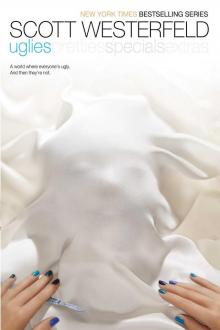 Uglies
Uglies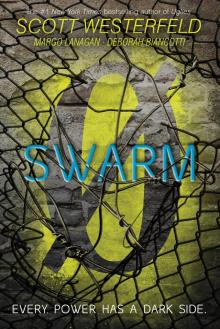 Swarm
Swarm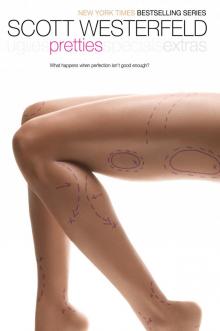 Pretties
Pretties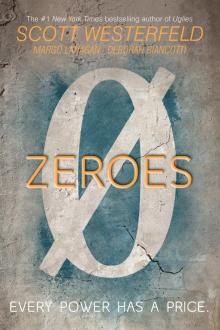 Zeroes
Zeroes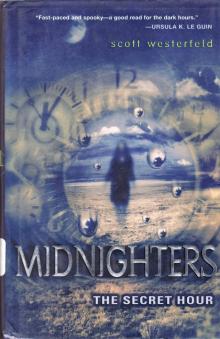 The Secret Hour
The Secret Hour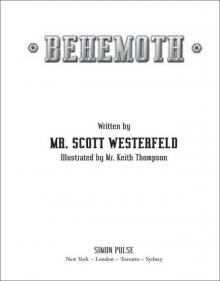 Behemoth
Behemoth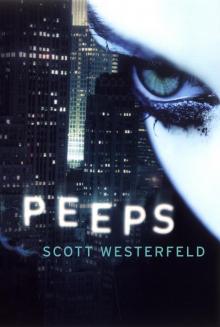 Peeps
Peeps Specials
Specials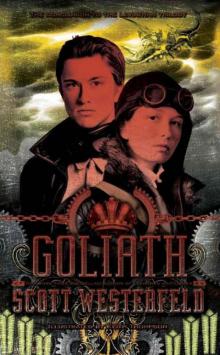 Goliath
Goliath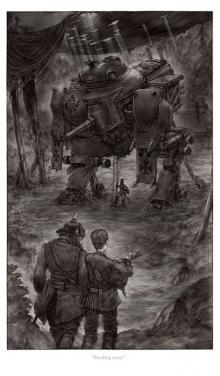 Leviathan
Leviathan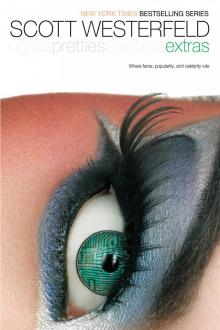 Extras
Extras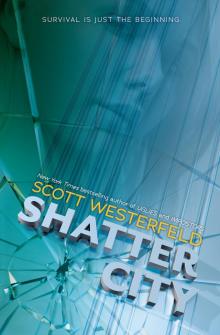 Shatter City
Shatter City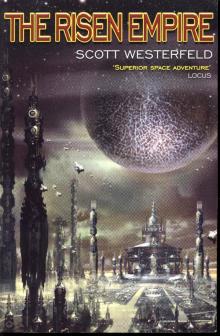 The Risen Empire
The Risen Empire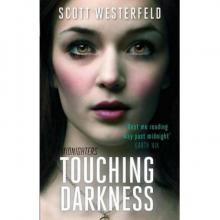 Touching Darkness
Touching Darkness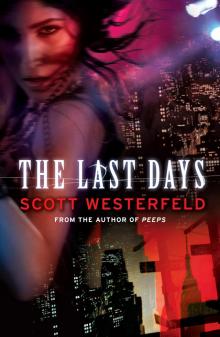 The Last Days
The Last Days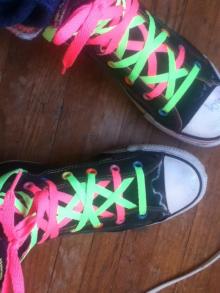 So Yesterday
So Yesterday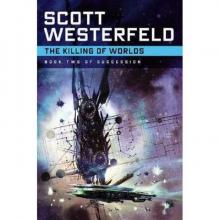 The Killing of Worlds
The Killing of Worlds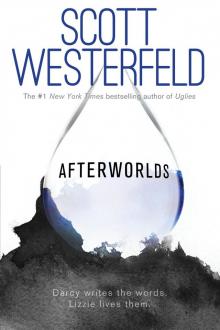 Afterworlds
Afterworlds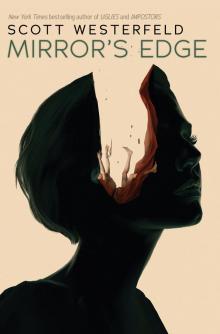 Mirror's Edge
Mirror's Edge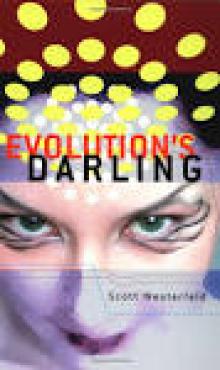 Evolution's Darling
Evolution's Darling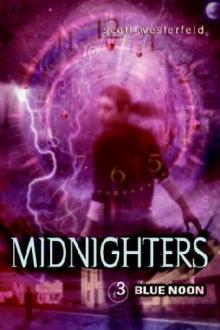 Blue Noon m-3
Blue Noon m-3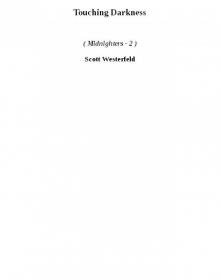 Touching Darkness m-2
Touching Darkness m-2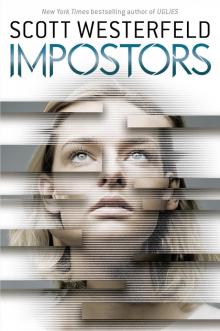 Impostors
Impostors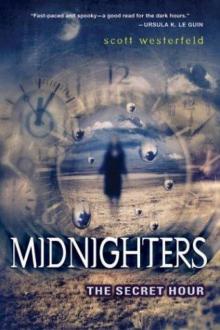 The Secret Hour m-1
The Secret Hour m-1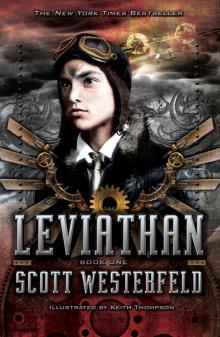 Leviathan 01 - Leviathan
Leviathan 01 - Leviathan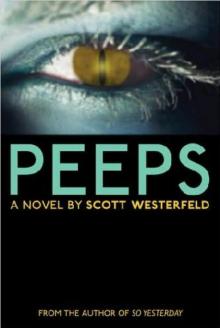 Peeps p-1
Peeps p-1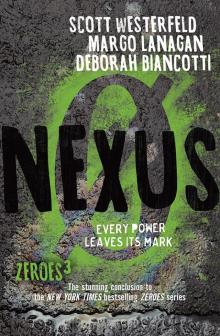 Nexus
Nexus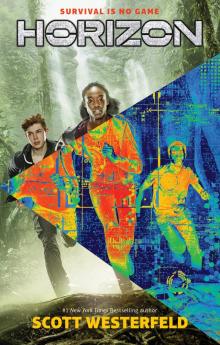 Horizon
Horizon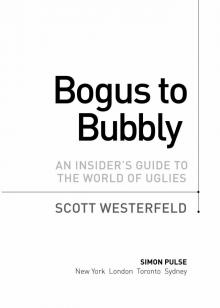 Bogus to Bubbly
Bogus to Bubbly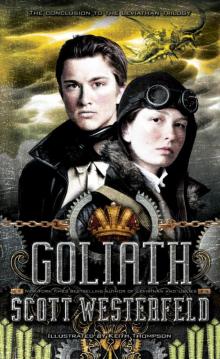 Goliath l-3
Goliath l-3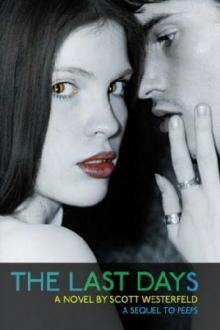 The Last Days p-2
The Last Days p-2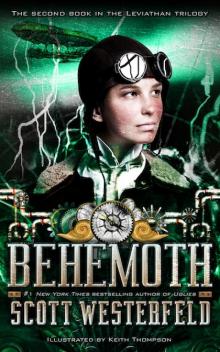 Behemoth l-2
Behemoth l-2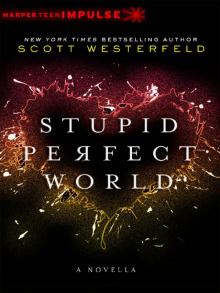 Stupid Perfect World
Stupid Perfect World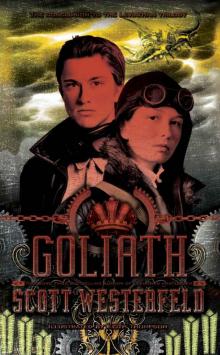 Goliath (Leviathan Trilogy)
Goliath (Leviathan Trilogy)